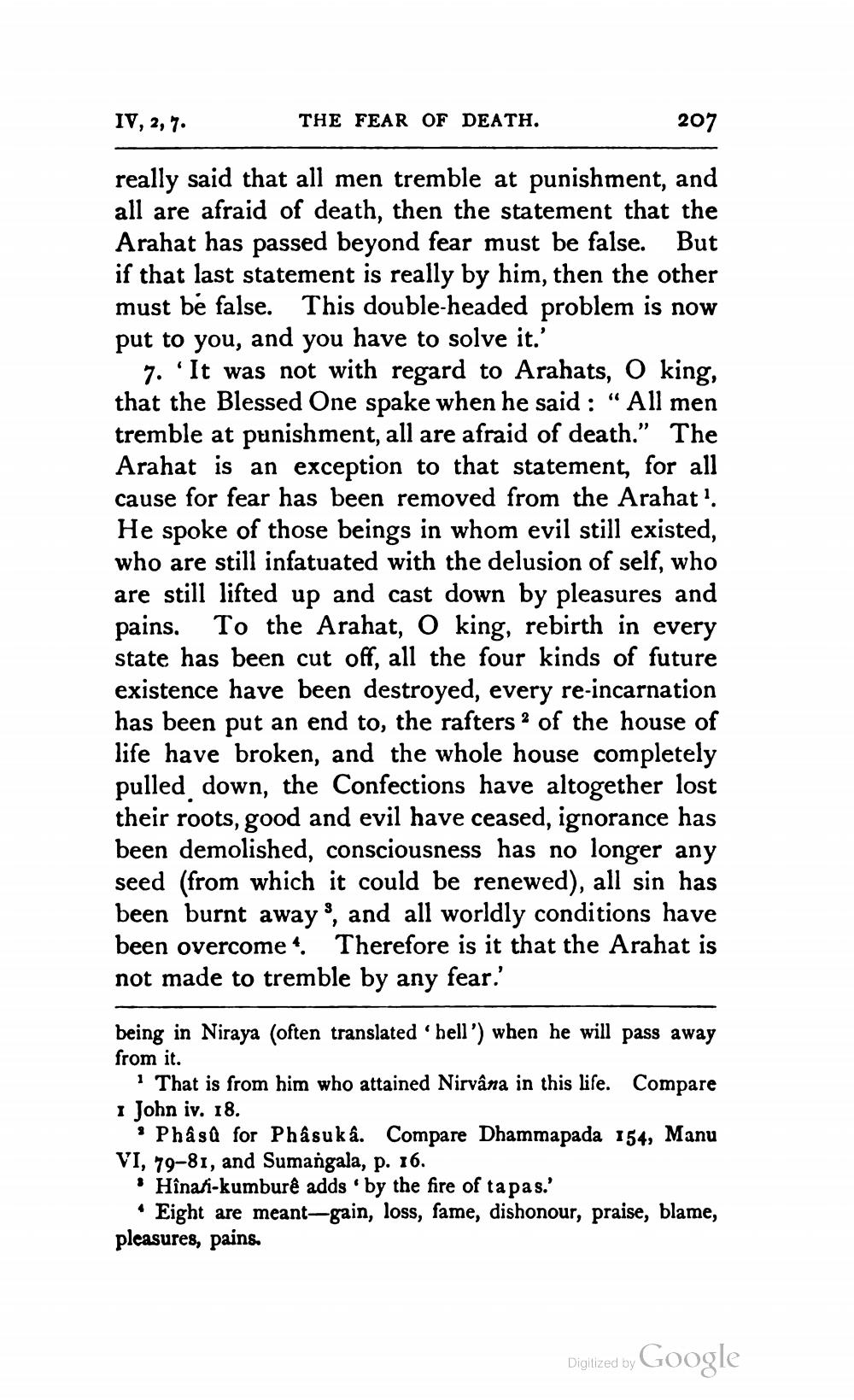________________
207
really said that all men tremble at punishment, and all are afraid of death, then the statement that the Arahat has passed beyond fear must be false. But if that last statement is really by him, then the other must be false. This double-headed problem is now put to you, and you have to solve it.'
7. 'It was not with regard to Arahats, O king, that the Blessed One spake when he said: "All men tremble at punishment, all are afraid of death." The Arahat is an exception to that statement, for all cause for fear has been removed from the Arahat1. He spoke of those beings in whom evil still existed, who are still infatuated with the delusion of self, who are still lifted up and cast down by pleasures and pains. To the Arahat, O king, rebirth in every state has been cut off, all the four kinds of future existence have been destroyed, every re-incarnation has been put an end to, the rafters of the house of life have broken, and the whole house completely pulled down, the Confections have altogether lost their roots, good and evil have ceased, ignorance has been demolished, consciousness has no longer any seed (from which it could be renewed), all sin has been burnt away 3, and all worldly conditions have been overcome *. Therefore is it that the Arahat is not made to tremble by any fear.'
IV, 2, 7.
THE FEAR OF DEATH.
being in Niraya (often translated 'hell') when he will pass away from it.
1 That is from him who attained Nirvâna in this life. Compare I John iv. 18.
Phâsû for Phâsuk â. Compare Dhammapada 154, Manu VI, 79-81, and Sumangala, p. 16.
• Hînafi-kumburê adds by the fire of tapas.'
4
Eight are meant-gain, loss, fame, dishonour, praise, blame, pleasures, pains.
Digitized by Google




